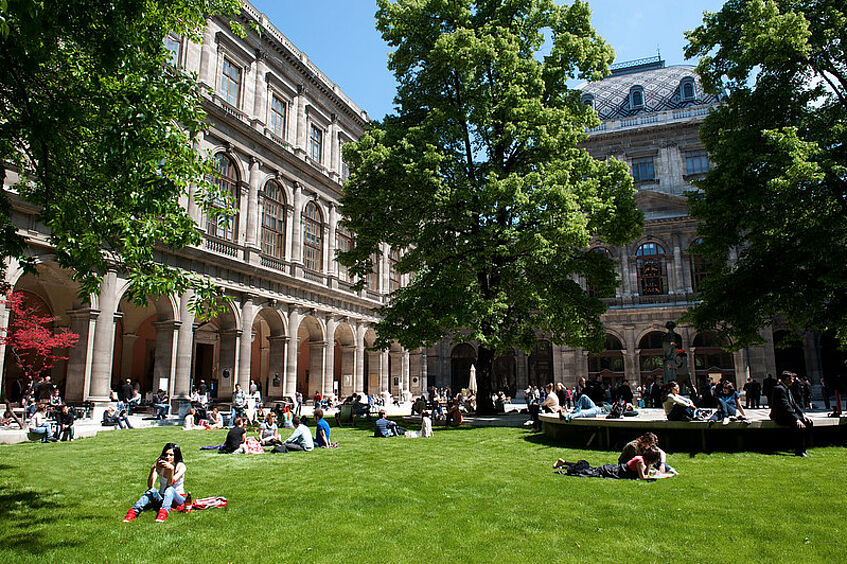Gender Studies (Master)

© Universität Wien / Barbara Mair
The master’s programme in Gender Studies aims at imparting knowledge of historical and current influences of gender constructions in research and society. Inter- and transdisciplinarity is a fundamental principle of gender studies and enables a transfer of methods and epistemes, as well as the integration of different research cultures and traditions in the entire spectrum of approaches within gender studies.
Master of Arts
Degree Programme Code: 066 808
4 semesters / 120 ECTS credits
Language: German
NO entrance examination
Facts & Figures
- Students: n.a.
- Graduates in the last academic year: n.a.
- Number of semesters needed for graduation (median): n.a.
Data updated on: 03.12.2024
Attention
Instruction Language German
Please note that the instruction language of this programme is German. To start the degree programme, you need to hold a certificate of German proficiency on C1 level.
Admission Procedure
Information about the admission procedure
Admission requirement:
- completion of an eligible degree programme
- PLUS qualitative admission requirements
Information on Previous Studies:
Getting started
Getting Informed
Study Programme
The master’s programme consists of modules on the following subject areas: Central Topics and Issues and Theoretical Perspectives and Methodological Approaches. In addition, students have to select an individual specialisation and complete a master's module. To successfully complete the programme, students have to write a master’s thesis and pass a master’s examination.
Five Concepts
which you will deal with during your studies:
- Gender
- Multiple discrimination
- Transdisciplinarity
- Epistemological approaches
- Intersectionality
... and many more.
Overview of the programme structure & topics
Here you find the current offer of courses for this programme to gain better insight into the topics and structure. For more information please click on the respective level.
Nach dem Studium
The master’s programme in Gender Studies qualifies students for a career in a wide range of occupational fields such as economics and academic research, public administration, interest groups, social counselling and NGOs, cultural management, media and press. Moreover, they can pursue a career as equal opportunities officers, or work towards establishing gender and diversity management in the public or private sector on a national or international level.
Graduates' Perspective on the Degree Programme
Graduates ...
- say that this degree programme receives the grade: 2.4 (good)
- rate the level of difficulty as: 3.3 (appropriate)
→ These results are based on feedback from 26 graduates.
*You can find further assessments of the degree programme from its graduates’ perspective in the graduate survey of the master's programme in Gender Studies (in German).
Graduates ...
- find employment within 2 months after graduation on average.
*You can find further information on career entry and career paths in the tracking of graduates "MA Gender Studies".
